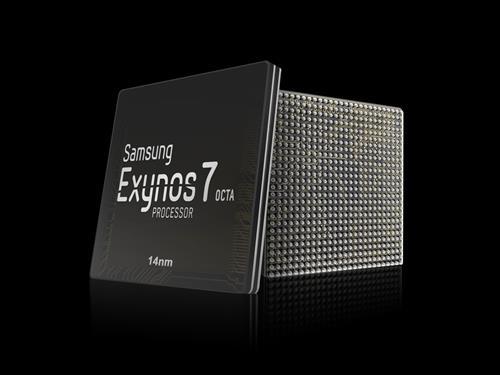Samsung Electronics said Thursday that it has started mass production of its own flagship mobile chip Exynos 8 Octa and Qualcomm’s Snapdragon 820, to be fitted on premium smartphone models, including the Galaxy S7.
The chips are built on a new technology, called the 14-nanometer low-power plus process, the second generation of the firm’s 14-nm FinFET process technology first adopted by the Seoul-based firm last year to build the Exynos 7 Octa, the system-on-a-chip that powers the Galaxy S6.
 |
| Samsung Electronics‘ Exynos 7 Octa built on the 14-nanometer FinFET chip technology. (Samsung Electronics) |
“We are pleased to start production of our industry-leading, second generation 14-nm FinFET process technology that delivers the highest level of performance and power efficiency” said Charlie Bae, an executive vice president of Samsung’s system LSI business.
“Samsung will continue to offer derivative processes of its advanced 14nm FinFET technology to maintain our technology leadership,” he added.
Samsung’s new 14-nm LPP process delivers up to 15 percent higher speeds and consumes 15 percent less power than the previous 14-nm LPE process through improvements in transistor structure and process optimization, according to the firm.
Samsung, a leading chip foundry firm, is the only chipmaker to deploy the 14-nm-class technology, and the latest development is expected to widen the technological gaps with its competitors Taiwan Semiconductor Manufacturing Company, GlobalFoundries and Intel.
The company raked in $40.7 billion in revenues in 2015, the second highest figure following Intel, which earned $49.3 billion last year, forecast market researcher HIS said.
The Korean chipmaker is also betting big on the 10-nm-class chips, widely expected to be developed in the latter half of this year.
By Kim Young-won (wone0102@heraldcorp.com)



